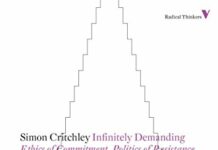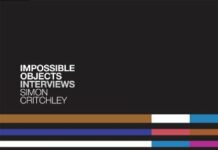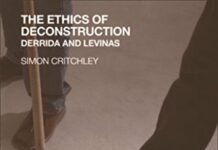
Ebook Info
- Published: 2005
- Number of pages:
- Format: PDF
- File Size: 0.39 MB
- Authors: Simon Critchley
Description
This book is an invitation to read poetry. Simon Critchley argues that poetry enlarges life with a range of observation, power of expression and attention to language that eclipses any other medium. In a rich engagement with the poetry of Wallace Stevens, Critchley reveals that poetry also contains deep and important philosophical insight. Above all, he agues for a ‘poetic epistemology’ that enables us to think afresh the philosophical problem of the relation between mind and world, and ultimately to cast the problem away.Drawing astutely on Kant, the German and English Romantics and Heidegger, Critchley argues that through its descriptions of particular things and their stubborn plainness – whether water, guitars, trees, or cats – poetry evokes the ‘mereness’ of things. It is this experience, he shows, that provokes the mood of calm and releases the imaginative insight we need to press back against the pressure of reality. Critchley also argues that this calm defines the cinematic eye of Terrence Malick, whose work is discussed at the end of the book.
User’s Reviews
Opiniones editoriales Review ‘Things Merely Are is very much a manifesto that aims to break the frame of philosophical thinking within the English-speaking tradition. And in the bargain Critchley gives us a fresh reading of Wallace Steven’s work that academic literary criticism desperately needs. My hope is that this book is not just a one-trick pony but the opening of a philosophical investigation into literary modernism.’ – Notre Dame Philosophical Review About the Author Simon Critchley is Professor of Philosophy at the New School for Social Research, New York and at the University of Essex. He is the author of many books, including Very Little … Almost Nothing and On Humour, both published by Routledge.
Reviews from Amazon users which were colected at the time this book was published on the website:
⭐Simon Critchley adheres to a common, academic agnostic denial of the validity of Wallace Stevens’ deathbed entrance into the Roman Catholic Church. For Stevens, the most important idea in poetry is the idea of God. He brought that idea to fruition in 1955, welcoming, and being welcomed by, the Catholic Church. Simon compliments Heidegger, who absorbed Edmund Husserl’s phenomenology, without acknowledging his debt to his mentor. Edmund Husserl was Jewish. Heidegger was a Nazi, and an influence on Sartre. Eric Metaxas writes that Sartre, on his deathbed, ‘…confessed his sins and came into the Church,’ and that Camus’ friendship with Simone Weil, his reading of the Bible, and his discussions with Methodist Pastor Howard Mumma, led him to say to Pastor Mumma, ‘…I am going to keep striving for the faith.’It’s a good book, but short : the first 90 pages are about Stevens but the remaining 20, the films of Terrence Malick are discussed.(Keats or Shelley would have said that I had paid for a pamphlet only … at nearly 30 bucks, Byron would have laughed)But it’s useful because some points are made which Helen Vendler does not make even in her Introduction to her ‘Extended Wings’ book. (You’d think that she’d have covered everything, there, wouldn’t you … even when she says in her shorter tome ‘Words Chosen Out Of Desire’ that Stevens’s titles do not have any semantic relation to a poem’s actual content. (Well, glory be !)(Actually, I have only read recently, that WS thought that he did title his poems semantically true to the content.)Critchley uses general words, like ‘anti-realism’ : Stevens’s philosophical position cannot be ‘assimilated to …’ he says ; he thinks, too, that Romanticisms are a fallback to failures, (my words) and that R. is the folly of private sexual intimidations, (my words, again, but I reckon C. means as much.PS he does mention ‘anxious atheisms’ too)His book is best read in collaboration with the best – as all books on Stevens must, I reckon : Vendler, as mentioned, plus Longenbach’s Historicist version (that is, if you want politics posing as analysis – but that book is still not a bad one) and perhaps Frank Kermode as an introduction … but I like George Lensing’s, ‘A Poet’s Growth’. It’s clear and distinct … and it tells me why Robert Frost is, really, as good a poet.I’ve read Stevens’ letters. I’ve read “The Necessary Angel.” I’ve read Vendler and tried to read Bloom. I’ve even made it partway through Richardson’s dense two-volume biography. And, of course, I’ve read the poems–over and over and over for forty years. This book comes the closest to describing exactly what’s going on in Stevens’ mind. Critchley’s analysis brings everything into focus for me. I knew Critchley was on the right track after reading his first chapter, which is nothing less than a crib sheet of Stevens’ brain. Furthermore, it’s full of penetrating questions such as this: “What is it about the particular meditative poetic form that [Stevens] developed that is able to carry genuine philosophical weight and yet which is impossible to translate into prose?” Critchley devotes much of the book to solving this riddle.The rationale for this Amazon review stems from the fact that Amazon recommended “Things Merely Are” by Simon Critchley and I bit. But it turned out that this short volume is well-written, even lucid,[his choice of audience extends beyond the academy]and focuses on the inverse relationship of imagination and reality as found in “The Snowman”:”Nothing that is not there and the nothing that is.” Critchley has a strong reading of Stevens and develops a theory of how poetry works which has a clarity unknown to H Bloom in “The Poems of Our Climate.” “Things Merely Are” is a from my perspective a welcome addition to the conversation about Stevens and is of the quality produced by Helen Vendler.
⭐
Keywords
Free Download Things Merely Are: Philosophy in the Poetry of Wallace Stevens in PDF format
Things Merely Are: Philosophy in the Poetry of Wallace Stevens PDF Free Download
Download Things Merely Are: Philosophy in the Poetry of Wallace Stevens 2005 PDF Free
Things Merely Are: Philosophy in the Poetry of Wallace Stevens 2005 PDF Free Download
Download Things Merely Are: Philosophy in the Poetry of Wallace Stevens PDF
Free Download Ebook Things Merely Are: Philosophy in the Poetry of Wallace Stevens





